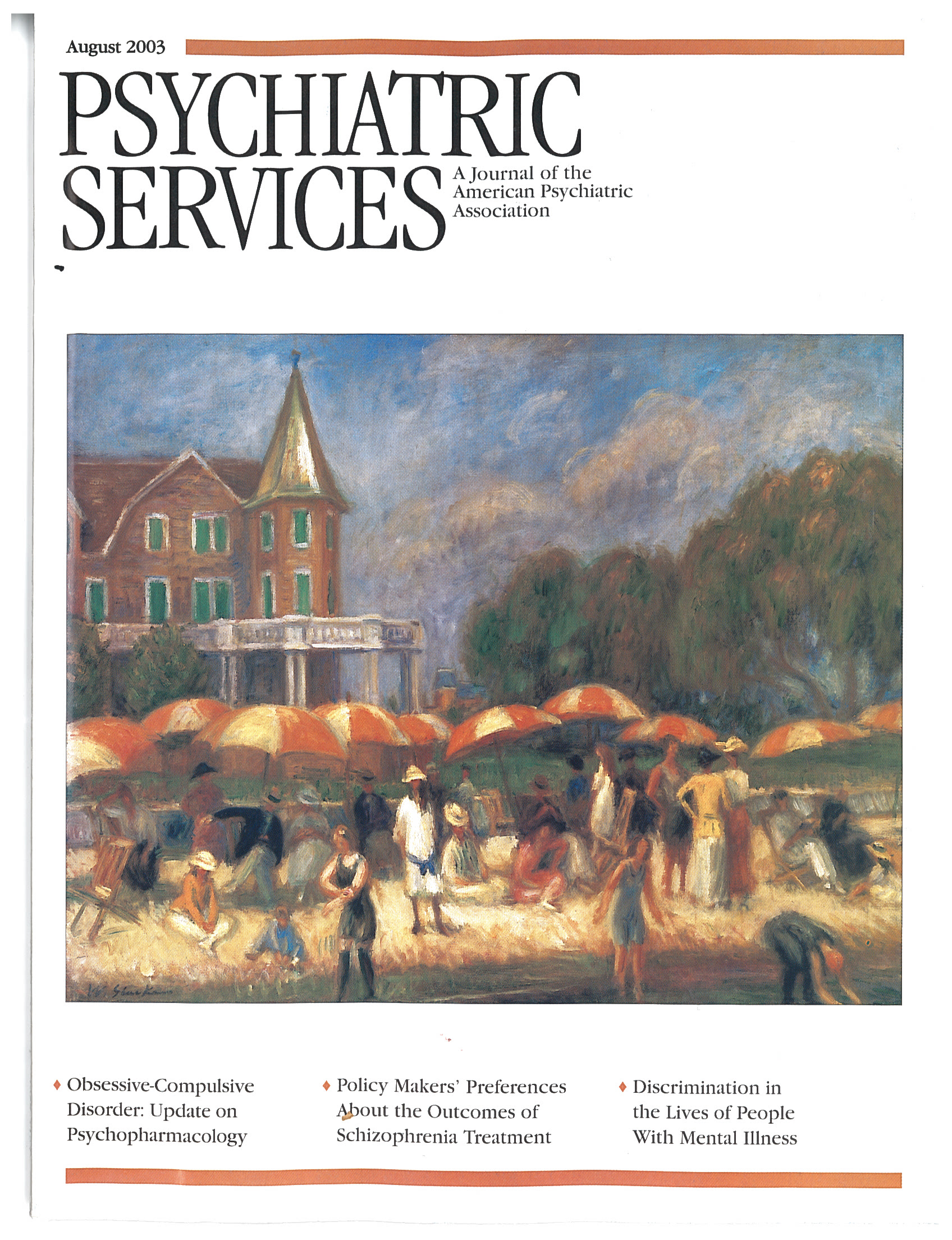Perceptions of Stigma
Research has shown that a majority of persons with mental illness perceive themselves as being stigmatized by others. Moreover, many individuals identify themselves with multiple groups that are publicly stigmatized. In a study reported in this issue of Psychiatric Services, Patrick Corrigan, Psy.D., and his coauthors sought to gain further perspective on stigma by asking how discrimination due to mental illness compares with discrimination associated with belonging to some other stigmatized group. A sample of 1,824 persons with mental illness answered questions about their perceptions of stigma due to mental illness. More than half of the sample reported some experience with discrimination, the most frequent reasons being mental disability, race, sexual orientation, and physical disability. Areas in which discrimination due to mental illness frequently occurred included employment, housing, and interactions with law enforcement, and these areas did not differ by group characteristic. Among the authors' conclusions was that discrimination based on characteristics other than mental illness does not diminish the impact of stigma associated with mental illness (see page 1105).
Policy Makers' Preferences for Treatment Outcomes
When public policy makers make spending decisions about treatments and services for persons with schizophrenia, do they envisage outcomes that are preferred by consumers, families, and clinicians? To investigate this question, Martha Shumway, Ph.D., and her colleagues interviewed 100 policy makers in the state of Florida and 53 consumers, families, and treatment providers. Participants rated the importance of outcomes in six domains: psychotic symptoms, deficit symptoms, side effects of medication, productive activity, daily activity, and social activity. The authors found that policy makers and primary stakeholders have convergent views on some of the major goals of schizophrenia treatment. Both groups valued functional outcomes most highly. However, the policy makers placed significantly less value on improvements in medication side effects, which may make them less likely to allocate funds for widespread use of atypical antipsychotic medications. The authors note that their findings provide a starting point for developing consensus about schizophrenia treatment policies (see page 1124).
Pharmacologic Treatments for Obsessive-Compulsive Disorder
Advances in psychopharmacology have led to safe and effective treatments for obsessive-compulsive disorder, a chronic and often disabling condition that has a major impact on quality of life in several domains, including social functioning, employment, and family relationships. Up to two-thirds of patients who have obsessive-compulsive disorder have comorbid psychiatric disorders—most commonly major depressive disorder—that may present a challenge in pharmacologic treatment. As part of a series of pharmacology updates, Alicia Kaplan, M.D., and Eric Hollander, M.D., report the results of their review of studies of pharmacologic treatments for obsessive-compulsive disorder. One finding was that 40 to 60 percent of patients with the disorder do not respond to adequate treatment trials with serotonin reuptake inhibitors. Agents that alter serotonin receptors and other neurotransmitter systems—such as dopamine, norepinephrine, and second-messenger systems—may play a role in treatment among nonresponders. Of importance, a subtype of patients with obsessive-compulsive disorder who have comorbid tic-related disorders may particularly benefit from augmentation with a dopamine antagonist (see page 1111).
Briefly Noted…
• In this month's issue, a client of a county mental health clinic describes her concerns about the emergence of "super clients" who work as staff members alongside professional caregivers but who do not necessarily represent the interests of the broader client population (see page 1101).
• The Psychopharmacology column discusses the underuse of older, but nevertheless effective, agents for the treatment of affective disorders—tricyclic antidepressants, monoamine oxidase inhibitors, and lithium—as well as strategies for increasing the use of these older agents (see page 1076).
• In Economic Grand Rounds, the costs of treating comorbid depression and alcoholism are compared with the costs of treating depression alone. Over a two-year period, persons with both conditions incurred behavioral health costs that were 61 percent higher and total care costs that were 44 percent higher than those of persons with depression alone (see page 1095).
• The books section opens with a review of a novel written from the perspective of a residential staff member in a community home for individuals with mental retardation (see page 1169).

